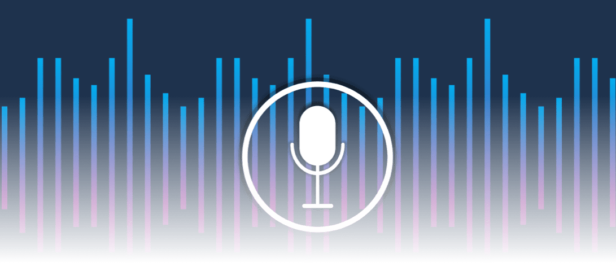The Gist
In this Becker’s Healthcare Podcast episode, Scott Becker interviews AKASA co-founders Malinka Walaliyadde and Benjamin Beadle-Ryby about the evolving role of generative AI in the revenue cycle. They discuss how AI-driven automation is helping health systems streamline operations, capture missed revenue, and reduce administrative burdens. The conversation also tackles key concerns around AI adoption, including trust, accuracy, and workforce impact. Read on to gain a deeper understanding of how AI is reshaping healthcare finance and why embracing these innovations is crucial for the industry's future.
The Becker’s Healthcare Podcast is devoted to the people who power U.S. healthcare. In this episode, Scott Becker (founder and publisher of Becker’s Hospital Review and Becker’s Healthcare) sits down with AKASA co-founders Malinka Walaliyadde (CEO) and Benjamin Beadle-Ryby (senior vice president) to discuss the transformative impact of AI on the healthcare revenue cycle. They explore how AKASA leverages generative AI to drive efficiency, improve financial outcomes, and support healthcare staff — while addressing concerns around trust, data integrity, and job displacement.
Scott Becker
This is Scott Becker with the Becker’s Healthcare Podcast. I’m thrilled today to be joined by two brilliant founders, the founders of AKASA. I’ll ask them in a second to introduce themselves. We’re with Malinka and Ben. AKASA is a leading AI technology company for health systems.
They’ve been in this space before people were talking about AI. Now there’s all this buzz and discussion around generative AI. A lot of people in healthcare are familiar with AKASA. They’ve had deep penetration, incredible penetration, particularly in the revenue cycle space.
I’d like to take a moment to start with what we’ll talk today. About what to expect in generative AI in healthcare, where AKASA’s at, and a lot more.
Before we get started, Malinka, Ben, I’ll ask you each to take a second to introduce yourself. Malinka, could you tee us up and tell us what does AKASA do and how do you work with healthcare providers? Then we’ll flip to Ben for a quick introduction and then we’ll go forward. Malinka.
Malinka Walaliyadde
Delighted to be here, Scott. Thank you for having us. So I’m Malinka, co-founder and CEO at AKASA. And as a quick overview of the company, what we do is we help revenue cycle leaders do more with less using cutting edge generative AI capabilities. We think that revenue cycle leaders are constantly asked to do so much with limited resources. Their world constantly changes. You get updated requests and demands from payers. It’s very challenging.
And now we have this incredibly powerful new capability through generative AI, also called large language models or LLMs, that make things that were very difficult to do before now, easy to do. And it creates some amazing new capabilities.
So the way we think about this is large language models or LLMs or GenAI can deeply understand clinical records. That’s actually one of the big capabilities that LLMs can do. They can actually understand human language really, really well, and that ability to understand clinical records, we have taken, as a company, adopted that to understand healthcare, clinical, and financial data, and we bring that capability to bear in the revenue cycle. Because when you think about the revenue cycle, so much of it does require deep understanding of the clinical record to justify to a payer why appropriate reimbursement was necessary. And that requires a lot of communication of clinical documentation.
And so that’s where this amazing new capability with LLMs comes in handy. And what we’ve been able to do is understand how to use it for revenue cycle and build applications that makes sense for revenue cycle leaders and staff to use. And it’s been really, really fun to see. So that’s a quick overview.
Read more about How Generative AI and Large Language Models Are Bringing Innovation to the Revenue Cycle.
Ben Beadle-Ryby
Scott, just want to say thanks for the opportunity to be here, and just for your listeners, I’ve spent the past 15+ years in the revenue cycle working with hospitals and health systems. Prior to founding AKASA, I was a partner at the Advisory Board Company and then at Optum, and have been privileged to work with over 250 health systems across the country. And if you think about the last 15 years and where we were and some of the things that have happened over that time period, we have just grown tremendously as an industry. It started with how are we optimizing our org structures, our training, our staff management. But then the introduction of business intelligence tools and workflow tools. And we have been making incremental gains and improving performance.
But the emergence of AI and what we’ve seen over the last five years and really generative AI in the last two years. It presents the fastest acceleration of change and improvement that we’ve seen in recent history. And this isn’t just in healthcare, this is in every industry. We’re particularly excited about the work that we’re doing and we’re seeing in the realm of revenue cycle, and excited to spend more time talking with you about it today.
Scott
Well, thank you so much. And talk for a second. Yes, everybody’s talking about generative AI. Can you give us a better understanding of generative AI, particularly how AKASA applies this technology to revenue cycle. To hit the revenue cycle, the big focus of what you do, is such a huge part of healthcare. Tell us how AKASA applies generative AI technology to the revenue cycle, Ben.
Ben
Yeah, absolutely, Scott. Generative AI (GenAI) is, I think a lot of folks are talking about it. Large language models have enormous potential in healthcare. And at AKASA, to Malinka’s point, we have built solutions that apply this technology in really practical ways that improve financial and quality performance. And really we hold ourselves to a standard of is it driving impact? Is it driving return?
And so if we look at a particular space, think about the mid-cycle in the revenue cycle and maybe specifically the world of medical coding. If you unpack this space, what’s really interesting is 85–90% of health system revenue is on the inpatient side, the hospital facility side. But many of the attempts to apply technology in this space have been in that professional arena, which granted has a lot of value, but only accounts for 10–15% of any given health system’s revenue. And many of those efforts have been limited to certain specialties like a radiology or an ED. And the reason for this, Scott, is just the sheer complexity of coding an inpatient encounter.
I was going back to my ICD-10 days and speaking with coders and clinical experts, and here’s what our data actually showed. Is that for a single inpatient encounter, on average, there are 57 clinical documents. So those are progress notes and discharge summaries that are associated with that encounter. And what do we do today? What have we asked our human coders to do? We say, “Hey, review all the details of those 57 documents in order to select a series of codes, and you can choose from over 140,000 and those codes determine the DRGs and our quality indicators, severity of illness, risk of mortality.” And typically we’re asking human coders to do roughly 10–12 of those per day, right?
That’s like 570 clinical documents they have to read through every day. And they have to pull out and extract the narrative of each of those and the right things. And what it results in, if you just do the math, it’s multifactorial. It’s almost too big to compute. But there are a lot of natural human errors of omission. We don’t capture it all. And most health systems are doing this 30, 40, 50,000 times a day.
Thinking about applying AI to be comprehensive in this space and to review all of the work that’s happening, and really kind of a lightweight low friction way is just have our AI sit behind things and flag what is being missed in that complexity. And, in doing so, it is a huge help that delivers more accuracy and integrity in your medical record. It better reflects the quality of your patients. And what we’re seeing is that there are some actual significant DRG weight and revenue implications for organizations, where they’re leaving millions on the table. And so that’s I think, a really concrete application that we’ve been applying. I think Malinka may be able to speak a little bit more to it.
Scott
Malinka, could you do this favor? What happens is, I’ve watched you guys for years, and I understand the impact that you have with health systems. Can you share a real-world example for the audience of how your product, what you do impacts health systems? And then I’ll ask Ben or you, how can health systems and staff trust the AI that’s both going to get things right? And it’s not going to take data in strange places? Malinka, take us first through a real-world example of how what you do and AKASA’s products impact health systems.
Malinka
So just to go through one group that we’re working with, a large academic group, we were able to show tens of millions of additional opportunity that was previously not being captured. And it’s a remarkable improvement that folks can see. And, importantly, these are bottom-line improvements. They’re very meaningful. They can improve the entire enterprise’s operating income substantially, and they can be done very efficiently. It takes very few resources to use this type of AI and see that type of impact. So that’s some of the impact we’ve been able to see.
Scott
So Ben, let me ask you this question because, yes, the generative AI moves at a different speed and starts to pick up its own speed. But all of us are sort of increasingly concerned about where might it go? Will it duplicate a ton of different errors? Will it have biases? Will it be like the Terminator and RoboCop and take over the world? But in all reality, how do we trust the AI as we apply it to health systems and make sure it doesn’t go in strange directions or hijack the data? Ben, could you take a moment on that and talk to us about trust on using the AI?
Ben
Yeah, of course. Scott. I think it’s such an important question to be asking. And trust matters with all AI, right? Every application across any industry — if we’re using it for our personal purposes or business purposes. But that element of trust seems even more important in healthcare, right? As we are supporting the decisions and reflecting the quality of the care that’s being provided. And we at AKASA believe it is incredibly important to build trust in AI applications. And we’ve invested heavily in breaking down the black box that is AI in order for users to understand, appreciate, and trust the AI suggestions and actions, right?
For instance, every single AI suggestion that our large language models that AKASA makes, is accompanied by a confidence level that indicates the algorithm’s confidence in that answer. Next, every suggestion comes with an AI-generated justification that is written in human language that we can see and interpret, and it details the combination of documentation, coding and compliance guidelines, really the evidence that supports that decision.
And finally, we’ve said, Hey, don’t just trust an AI-generated justification and the statistical confidence — all of which are trust-building — but we want to equip the user, those frontline staff with direct links to the medical record where you can see that specific documentation, you can see that supply measurement. And so essentially we feel it’s important to have our AI show its work. And in doing so, every user gets transparency into the AI. And the more that they’re interfacing with it, they’re actually seeing, wow, there is a lot of support. I agree with that. And you naturally get this trust. And, ultimately, it’s structured in a way that empowers the human staff member by bringing AI to their fingertips.
Scott
Fascinating. So when we talk about this, Malinka, there’s this increasing trust in AI and concerns about AI, but there’s also this great concern about what does it mean for staff, staff jobs, and how do the systems address this? Because so much what AI does is some of the thousands and millions of tedious tasks that were done by humans that sometimes it’s hard to even find humans to do those jobs. But even when it’s not, how does this apply to staff jobs and how can we think about this?
Malinka
Yeah, I mean, this is a great debate, right? This is a great concern that happens every time there is a really advanced new technology that comes out. And my honest view on this is it’s not that AI will replace people. But people using AI will replace people that are not using AI. Because the fundamental thing that I think we should all be caring about is productivity, right? Output per person. And the reality is the amount of healthcare that we need to deliver as a country is so much higher than we currently can deliver today. And a lot of other really smart people, entrepreneurs, folks using AI, are doing a lot of things to increase the amount of care that can be delivered. And as that happens, the amount of administrative work and back-end work is also going to increase. And so there’s going to be substantially more.
The amount of demand for the work is so much higher than the supply we have of any type of staff. That is the constraint. And so we have to increase productivity. The main way we have increased productivity as a society is through novel new technology.
Just a couple of interesting examples to look at outside of healthcare. If you go back to when Excel was introduced, Lotus Excel (this is a while back, right)? Back when bookkeepers were painfully and manually creating spreadsheets on paper. They could do a single financial model. It was very, very hard to do.
Scott
It was back in the day when you and Ben weren’t even born, but I was already watching the NBA. But, yes, I remember how long ago it was.
Malinka
Exactly. It was a while back then exactly. When you look at the outcomes and the data from that era, what actually happened is financial analyst’s output grew so dramatically in that period of time as these new technologies were introduced. And what became possible is instead of very painfully creating, for example, a single financial model, you could now create multiple financial models using multiple variables that you could immediately change. And the amount of output and value created was so much higher.
And, as a more recent example, it’s interesting to look at actually, we’ve talked about the medical coding space. It’s interesting to look at the software coding space, actually. And so there has been probably the most movement in terms of adoption of GenAI technologies has actually been in copilots for software coders. In fact, potentially the fastest one of the — if not the fastest — growing company of all time is recently a company that was called Cursive that creates a co-pilot to help software coders code.
Scott
The point being that this should accelerate the work of great systems and great employees and great teams. So if my son is a CS graduate student, I shouldn’t worry about not having a job. He’s just got to learn to work with this as a partner that’ll help him expand what he could do versus viewing it as something that will take his job as a CS graduate student.
Malinka
Exactly. Because I think, and even our engineers are investing in using these tools. They want to use these tools because they know they can be a lot faster, more accurate. Again, the amount of work that needs to be done is so much higher than our ability to do the work. And that’s always going to be true, I think in many industries. Healthcare for sure being one of them.
Scott
Yes. So fascinating. And Malinka, let me ask you this. So we shouldn’t view it as, for example. I mean many of us worry about, for example, the driverless cars. This will take away a lot of jobs from unskilled people that need those jobs. Often the first job of people. But that’s five, 10 years until that really seems to take away from taxis and Uber drivers. But it’s a real, real concern.
Here, many of the jobs that you’re working with in the revenue cycle, as I’ve heard it over the last several years, many of those are really hard to staff regardless, as well. And if systems can reallocate that to clinical work in other places, terrific. And you’re still going to need a lot of people to manage what’s going on in the revenue cycle. But hopefully take away a lot of the tasks that it’s very hard to get humans to do regardless.
Malinka
Exactly. This is not fun. I mean the work that’s being removed, is not the fun work. It’s the work that people want to avoid. And so how great would it be if you could have a machine or AI, do those portions and have folks focus on the most intellectually interesting and complex parts of the flow?
Scott
Any closing thoughts today? How can people learn more about AKASA and connect with you and what you’re doing?
Malinka
Sure. So first, in terms of reaching out to us, folks can go to AKASA.com, they can reach out to myself or Ben. But, in terms of closing thoughts, I think it really is such an incredibly exciting time in the technology world. As Ben was saying earlier, this advancement we’ve seen in large language models, this new form of AI, is so powerful. It’s crazy to think that all of this only happened two years ago — just two years.
And look at how much has happened in that limited period of time. And so we’re still in the early innings, and I think so many industries are going to be transformed because now things that used to be impossible to do are now not only possible to do, but easy. And that just reduces the barrier to solving so many types of problems that previously we couldn’t even handle. And so I’m personally just incredibly excited to see what’s possible in both healthcare and outside using large language models.
Scott
Let me ask you one more question, if you don’t mind. How did you and Ben — because I’ve watched this now for years, as you know — how did you guys get so far ahead of this? Because when I first talked to you as an education for me on artificial intelligence, large language models, and all these things, how did you get in front of this at the time and see this? And talk about how long you’ve been in business now?
Malinka
Yeah, great question. We have been working in AI and revenue cycle for several years now, six years, six+ years at this point. And what it’s meant is we have built such deep domain expertise in our space. We have great technology talent from Silicon Valley. We have great domain experts from health systems. And so with the advent of LLMs two years ago, we were in such a great spot to capitalize because we already had great health systems we were working with. We had great customers we were working with at the time. We had great talent, we had great investment capital into us, and we saw how powerful LLMs were going to be — just based on our domain knowledge and experience up until that point.
And then we decided to go focus very heavily on how you could use large language models and GenAI in revenue cycle because we had some unfair advantages, frankly, by being at that moment in time. And, because of that, we have been able to bring some of these products to market, we think faster than anyone else because of our ability to capitalize on that moment in time.
So thank you for recognizing that, Scott. It is true. You have seen us grow and adapt and evolve through the years, and I think that’s a hallmark of any successful company. You have to be ready when foundational changes happen, and we were fortunate to do so.
Ben
Yeah, and Scott, if it’s okay, I’ll just build on that because Malinka said it so perfectly. But we take great pride in the feedback we get from our customers. And there was this moment a couple years ago as generative AI emerged and people were seeing ChatGPT. And a customer said to us: you were ahead of the curve before there was even a road. And so when it comes to AI, we have been very well positioned. We had the right team, the right backers, and I think a belief from the early health systems that we worked with in our partners, and we’ve been thrilled to capitalize on it.
And it’s remarkable the feedback that we just received from Black Book Research, which conducted a survey of over 1,300 health system executives. We were recognized as a top AI leader in 17 of the 18 categories in AI healthcare finance. And so we’re looking to continue building on that. And some of our latest developments promise to be even more impactful. And so we look forward to hopefully coming back with you in a couple of years and reflecting further with some bigger outcomes.
Scott
Well, I hope sooner than that. Malinka and Ben, it’s always fantastic to visit with you. Thank you guys very much for joining us. It’s really a pleasure to learn what you’re doing. Thank you very much.








